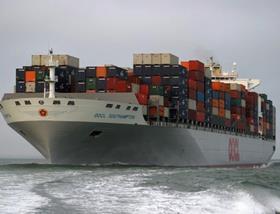
Orient Overseas International Ltd (OOIL), the parent group of leading Hong Kong shipping line Orient Overseas Container Line (OOCL), has announced that year-on-year net income dropped off by 86 per cent through the first half of the year, down to US$175m from US$1.28bn in 2010.
Excluding a 2010 profit element of just over US$1bn attributed to the sale of the group's PRC property development business, the 2011 result represents a US$105.3m or 38 per cent decrease in earnings from comparable activities.
'Following the record result for our container transportation and logistics business in 2010, trading conditions in the first half of the year have been difficult and the outlook for the full year is disappointing,' said C C Tung, chairman of OOIL. 'Demand levels remain reasonable as reflected in an overall year-on year increase in liftings, but, with the rate of new capacity introduction having outpaced demand growth, freight rates on many east-west trades have steadily deteriorated since last year. This is particularly noticeable on the Asia-Europe trades.
'The deterioration in freight rates has occurred despite the need for improved revenues to offset the significant increases in the price of bunker and other energy related costs that have occurred this year,' he added.
OOCL handled 2.44m 20ft containers in the first half, up 9.4 percent year on year, the group said, and took on one new vessel in the first half of the year, the 8,888TEU OOCL Beijing.
'Despite the disappointing trend in freight rates during the first half of the year, the Group has remained profitable. OOCL's results in the first half, particularly its operating margin, remain at an acceptable level despite the high price of oil – reflecting our success in meeting and exceeding customer expectations while keeping a tight control on itscost base,' Tung concluded.
'But with the industry still to absorb further new capacity in the second half of the year, and given the uncertain economic outlookin the United States and Europe, together with the ongoing pressure from energy costs, we expect that trading conditions for the second halfof this year will be difficult. Despite the poor short-term outlook, the Group remains in good financial health and is on a clear path of sustainable competitive growth.'






No comments yet